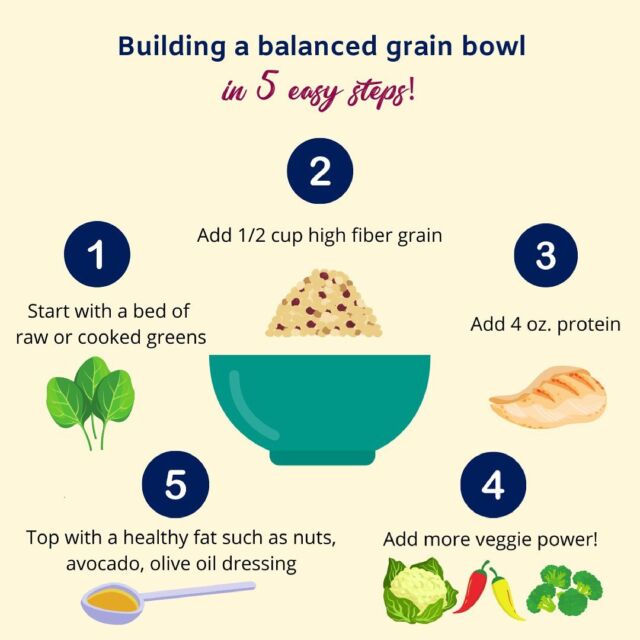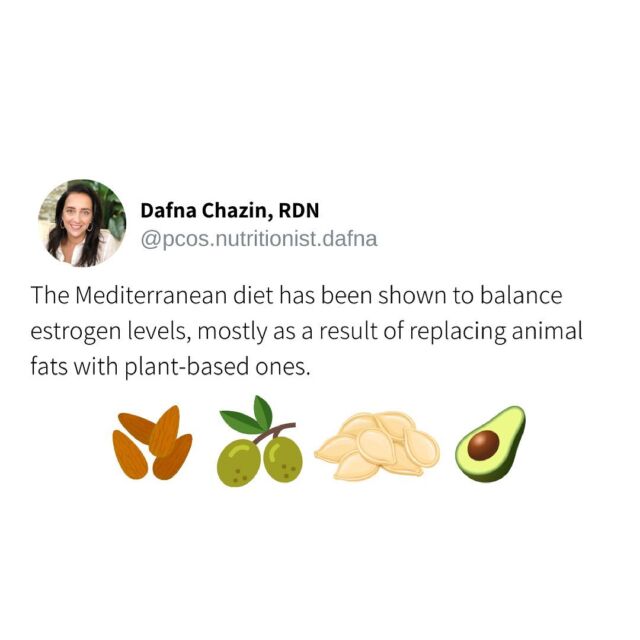Common Insulin Resistance Myths to Ditch Right Now!
Confused by the conflicting insulin resistance tips and information you’re seeing online? I can’t blame ya. The amount of questionable advice you’ve likely encountered can cause overwhelm to set in very quickly. But don’t worry, you’re in the right place and we’re going to sort it all out in this blog post.
I’m going to assume that today is not the first time you’ve heard about insulin resistance. In fact, as a woman with PCOS you’ve probably looked up this term many, many times. Problem is, there are some common insulin resistance myths floating around in cyberspace that we’re going to bust today! These are recommendations that not only prevent your from seeing great results and less cravings, weight gain and fatigue, they’re can also disrupt your hormones further.
As a PCOS expert and credentialed dietitian, it’s super important to me that the advice you receive, information you consume and habits you practice are evidence-based and highly effective. Thankfully, we have a good amount of research behind managing insulin resistance and ensuring that your blood sugar is well-controlled (remember, that is the KEY to balancing your hormones!).
Before we dive in, I want to explain what insulin resistance is just in case you’re still not sure.
What is Insulin Resistance?
Let’s start with some basic metabolism and digestion stuff! Every time we eat carbs (be it fruit, candy or beans), they break down to a basic sugar molecule, called glucose. yes, all carbs break down into sugar in the body – no matter what shape, color or texture they are. That sugar molecule enters your bloodstream through your digestive tract. It is the job of insulin to then carry this sugar out of your bloodstream into your cells where it can be burnt off to produce energy. This energy production fuels everything your body does – from breathing to digesting and all the way to brain function and your ability to move muscles. Without energy, there’s no life!
When someone has insulin resistance, their body is still producing insulin but not using it properly. In other words, insulin is not doing its job of ushering sugar from the bloodstream into the cells. Instead, that sugar stays in your bloodstream and so does insulin. The two are not communicating, they’re just hanging out together.
When no energy is produced by your cells (since there’s no sugar inside) your body continues to “nudge” the pancreas to release more and more insulin. Over time, both insulin and sugar can accumulate and raise your blood glucose and insulin levels above the healthy ranges.
This will often cause you to feel hungry and seek out food because the cells are still feeling deprived from not getting any “fuel”. In addition, a whole host of troublesome PCOS symptoms such as weight gain, fatigue and sugar cravings will occur when insulin levels are high. Plus, excess insulin attaches itself to receptors on the ovaries, triggering testosterone release, which leads to irregular or missed periods, hair loss, excess hair growth, acne, fatigue, belly fat, high cholesterol and so on. As you can see, managing insulin resistance is highly beneficial for healing PCOS symptoms and reducing your risk of chronic diseases such as diabetes, heart disease and even cancer.
Okay, now that we’ve got that covered, let’s start smashing some common insulin resistance myths!
Common Insulin Resistance Myth 1: Cutting out carbs is the best way to manage insulin resistance
If you’ve been here for a minute, you know that cutting out carbs from your diet is a no-go for me. In fact, I feel it can be detrimental to your health in the long term and is also not sustainable!
When you cut out carbs completely from your daily meals, you’re missing out on some key nutrients including B vitamins and FIBER. The latter is essential for proper blood sugar control and overall health because fiber:
- Slows down your digestive process. This means you’ll prevent blood sugar spikes after meals.
- Keeps you fuller for longer so you are less likely to overeat.
- Improves gut health and helps your “good” bacteria thrive
- Reduces your cholesterol levels and heart disease risk
Believe me, you do not want to miss out on these major benefits by cutting out carbs from your day!
Plus, when you’re reducing your carb intake drastically, you’re likely replacing those carbs with more protein and more fat. That can be counterproductive for someone with insulin resistance as you will see, in the next myth that we’re busting.
Instead of opting to eliminate carbs we need to get carb-smart. This means we’re mindful of the type, amount and timing of carbs so that we can reduce the body’s demand for insulin. One of the best ways to become carb smart is to know your unique carb tolerance.
Check out this earlier blog about the topic along with a deep dive on this podcast.
A main pillar of my approach in reversing PCOS symptoms with my clients is creating nutrition plans that are doable and sensible. I feel strongly that whatever approach you take needs to be highly sustainable since PCOS is a chronic condition you’ll need to manage for the rest of your life. Therefore, I advise against strict plans that completely cut out carbs, sugar, grains, legumes (talking about you here, Whole 30 diet) while promising magical results within a month – it’s just not how it works!
Not to mention, you want to enjoy food and feel flexible. Cutting out carbs is not my idea of JOY. I would never want you to miss out on pizza, pasta, and even desserts. These can all become a part of a balanced nutrition plan for PCOS, which is exactly what I teach inside my programs.
![]()
![]()
Common Insulin Resistance Myth 2 : Piling on the protein and fats is the best way to manage insulin resistance
Guess what makes cutting carbs even worse? Eating a whole bunch of protein & fat instead! Yes, we want to eat enough protein and include fat in every meal, but more is not necessarily better in this case.
Studies have shown that insulin resistance can be worsened by high intake of animal products and saturated fat. Naturally, when we eat less carbs, we’re going to replace them with more protein-based foods, mostly coming from animals. These foods often contain high amounts of saturated fats and protein.
This is important to know since studies have shown that saturated fat can make it harder for insulin to do its job. Plus, insulin is released not only after eating carbs, but also in response to excess protein intake.
This is why shifting your food intake away from carbs and leaning more heavily on protein can be counter productive for PCOS.
Instead, I would advise finding balance in your meals with the right ratios of protein, healthy fats and fiber-filled carbs. Keeping this balance throughout your meals allows your body to become metabolically more efficient and make it easier to balance your hormones. This means that over time, eating in a PCOS-friendly way will reduce your most stubborn symptoms naturally.
So there you have it, short and sweet today! We just busted through 2 very common insulin resistance myths!
I know it can be overwhelming to sort through social media for answers about healing PCOS. But, strict diets are not the answer since they’re based in restriction and can lead to disordered eating. While PCOS is complex and requires a specific food approach, that doesn’t mean you can’t enjoy your meals or include your favorite foods in your plan.
If you’ve been struggling with PCOS for a while and have tried a variety of methods with no success, I’d like to invite you to check out my 3-month coaching program Reset Your PCOS. You can find all the details right here.
 Unsure if you have insulin resistance (IR)? W
Unsure if you have insulin resistance (IR)? W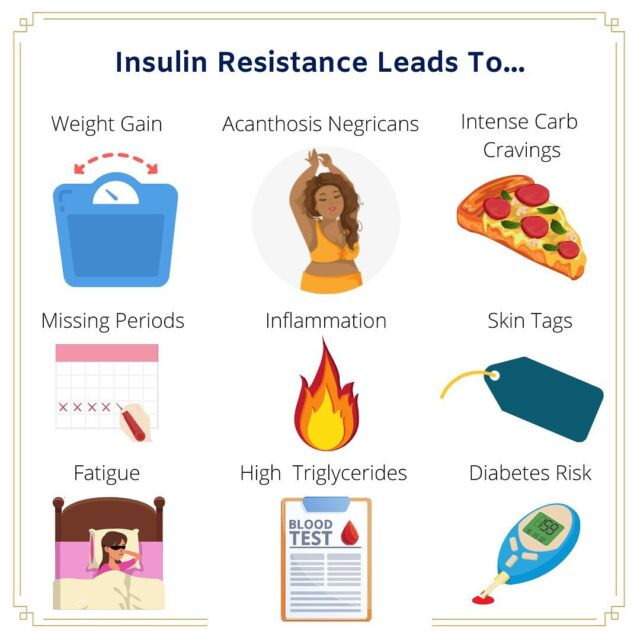
 Just sayin’ I hope these people
Just sayin’ I hope these people
 Are you self sabotaging by waiting On motivati
Are you self sabotaging by waiting On motivati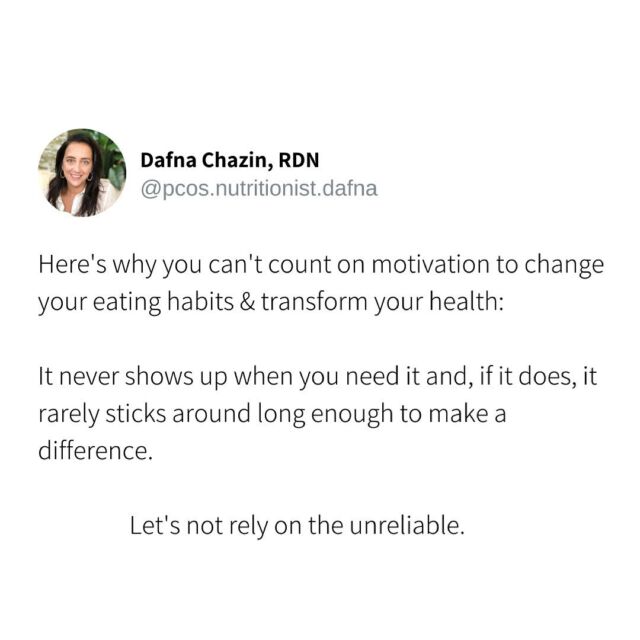
 Did you know that certain toxins in our env
Did you know that certain toxins in our env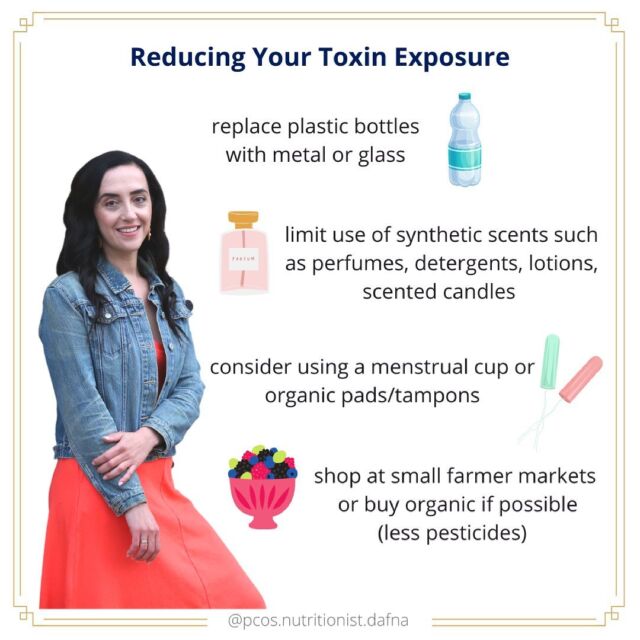
 Hands up for quick, balanced & delicious
Hands up for quick, balanced & delicious 